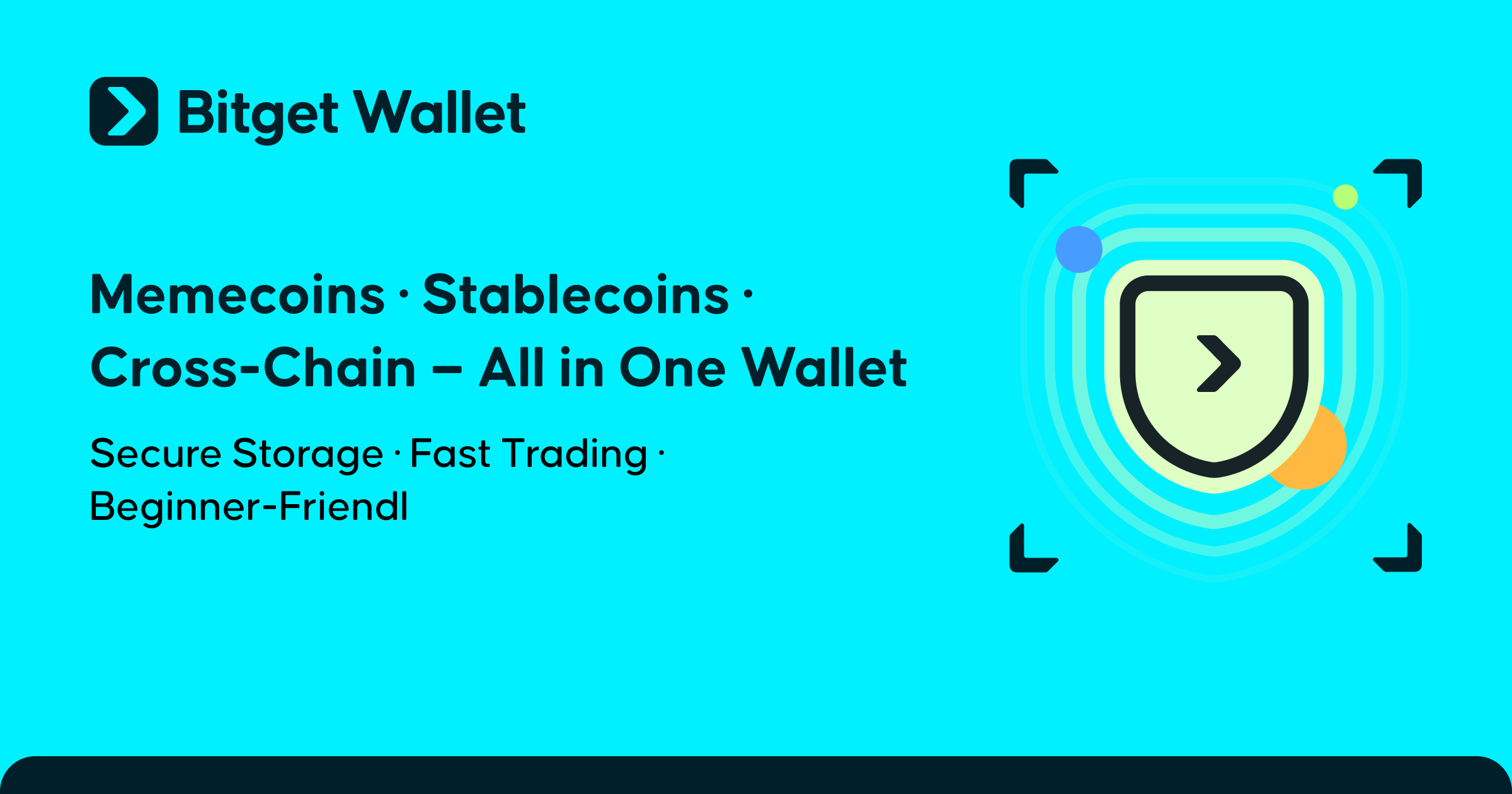Best 10 Crypto Cards for 2025: A Complete Guide

The best crypto cards in 2025 are reshaping how users spend digital assets, transforming cryptocurrencies from investment vehicles into practical payment tools for everyday transactions.
These payment solutions come in three main formats:
- Debit cards that instantly convert existing crypto holdings to fiat currency.
- Credit cards that offer traditional borrowing with crypto-based rewards.
- Prepaid cards that require advance funding before use.
The demand for crypto cards has surged dramatically as platforms like Bitget Wallet attract over 60 million users seeking seamless integration between digital assets and real-world spending. Plus, major payment networks like Visa and Mastercard now support crypto card transactions at millions of merchants worldwide.
This article review analyzes 10 best crypto cards for 2025, offering thorough comparisons across pricing models, incentive programs, and technical specifications. Bitget Wallet emerges as the premier choice through its minimal cost framework, built-in DeFi earning potential, and cross-blockchain support capabilities.
Key Takeaways
- The best crypto cards leverage robust security measures like two-factor authentication, biometric verification, and instant card freezing capabilities, while maintaining full regulatory compliance through mandatory KYC processes.
- High-performance payment cards deliver reward percentages between one and ten percent, with Bitget Wallet Card offering zero-cost transactions and Crypto.com providing exclusive membership perks for advanced account holders.
- Every crypto card transaction constitutes a taxable event requiring capital gains reporting, though utilizing stablecoins can minimize tax exposure while cashback rewards generally remain non-taxable upon receipt.
What Are Crypto Cards and How Do They Work?
Crypto cards function as payment solutions that bridge digital assets with traditional merchant acceptance networks worldwide.
Types of Crypto Cards
Crypto cards come in three primary forms, each serving different user needs and spending habits.
-
Crypto Debit Cards:
These cards are linked directly to your crypto wallet. When you make a purchase, the card provider automatically converts the required amount of cryptocurrency into fiat currency at the point of sale. Examples include the Bitget Wallet Card (Mastercard), Coinbase Card (Visa), and Bybit Card (Mastercard).
-
Crypto Credit Cards:
Similar to traditional credit cards, these allow you to borrow funds up to a limit and pay off the balance later. You don't need to preload funds, but you may incur interest or late fees. Examples include the Nexo Card (Mastercard), which lets you spend against your crypto collateral and earn cashback rewards.
-
Crypto Prepaid Cards:
These options require you to load a specific amount of crypto or fiat onto the card in advance. The Crypto.com Visa Card is a leading example, offering multiple tiers with varying perks based on the amount of CRO staked.
| Crypto Card Type | Function | Best For |
| Crypto Debit Cards | Spend directly from crypto balance with instant conversion | Daily transactions and regular spending |
| Crypto Credit Cards | Borrow funds, pay later, earn crypto rewards | Larger purchases and credit building |
| Crypto Prepaid Cards | Spend only preloaded amounts | Budget control and expense management |
Bitget Wallet Card is a native crypto debit card, designed for direct, real-time spending of digital assets with instant conversion and broad merchant acceptance.
Read more: What Is a Crypto Debit Card and How Does It Work?
How Do Crypto Cards Work?
When you use a crypto card, the provider's system instantly converts your chosen token into the appropriate fiat currency (USD, EUR, etc.) at the current market rate. This conversion is automatic and seamless, allowing you to pay at any merchant that accepts Visa, Mastercard, or similar networks.
Most leading cards support a range of cryptocurrencies, including Bitcoin, Ethereum, stablecoins like USDT, and sometimes platform-specific tokens. The experience is nearly identical to using a regular bank card.
Read more: How to Use a Crypto Card for Daily Transactions?
Are Crypto Cards Safe?
All best crypto cards implement two-factor authentication (2FA), instant card freezing, PIN reset, and real-time transaction alerts to protect users from unauthorized access and fraud. Apps are regularly updated for enhanced security, and users can monitor and control their spending via app dashboards.
Every trusted crypto card provider mandates customers finish identity checks, requiring submission of private details and government papers. Bitget Wallet Card operates as a properly licensed product under various regulatory permissions throughout major regions, creating a protected and lawful setting for customers.
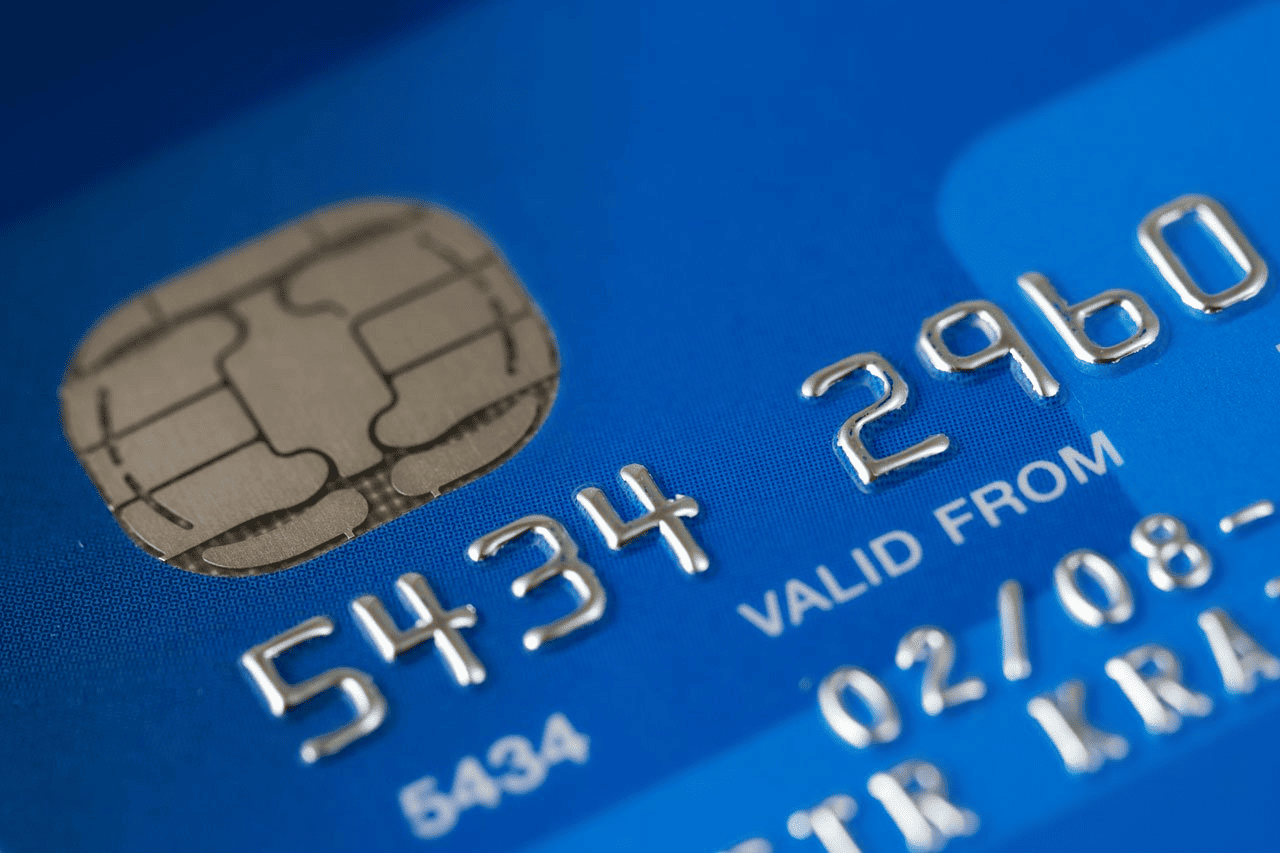
Source: Bitcoin.com News
🔥 Brazil Exclusive: Get 20% Cashback + 5 USDC Rewards with Bitget Wallet Card! 🔥
Make your first purchases smarter with the Bitget Wallet Card, now available exclusively for users in Brazil! Enjoy 20% cashback—capped at 10 USDC per user—and get your rewards in USDC at the end of the campaign.
✨ Campaign Highlights (Brazil Only):
- 🇧🇷 20% Cashback on eligible spending (max 10 USDC)
- Rewards distributed in USDC after the campaign
- Refer friends in Brazil & earn 5 USDC for each successful activation
- Friend must complete KYC + activate their Bitget Wallet Card
- Referral rewards paid out weekly
CTA: Brazil Users – Get Your Bitget Wallet Card Today and Earn 10 USDC!
Best Crypto Cards in 2025 – Quick Comparison Table
Compare crypto cards 2025 options to find the perfect solution for your digital spending needs and cryptocurrency preferences.
| Best Crypto Cards | Type | Cashback | Fees | Supported Assets | Availability |
| Bitget Wallet Card | Debit | Up to 0.4% per transaction, up to 0.25% monthly (USD cashback, tiered) | No issuance/ annual fee; low transaction fees; rewards credited monthly, spendable via card only | Multi-chain | Global |
| Crypto.com Visa | Prepaid | Up to 5% CRO (top tier); lower tiers 0.5–2% | No annual fee; 1% top-up fee; ATM withdrawal fees after free limit; CRO staking required for best rewards | 100+ cryptos | Global |
| Coinbase Card | Debit | 1% (BTC/ ETH/ DAI/ DOGE); 4% (GRT/ XLM/ AMP/ RLY) | No annual fee (US); €4.95 issuance (EU/UK); 2.49% liquidation fee on crypto spend; up to 3% FX fee | Multiple (40+) | US, EU, UK, EEA |
| Bybit Card | Debit | Up to 10% (VIP tier, capped at $150/mo); 8% base; in USDT/ USDC/ BTC/ AVAX | No annual fee; no inactivity fee; ATM and FX fees may apply | Major cryptos (BTC, ETH, USDT, USDC, AVAX) | Global |
| Nexo Card | Credit/ Debit | Up to 6% (Platinum, NEXO token); 1–2% base | No annual fee; interest on borrowed fiat; rewards depend on loyalty tier and NEXO holdings | Multiple | Global |
| Wirex | Debit | Up to 8% WXT (Elite Ultimate); 0.5–6% at lower tiers | No annual fee (US); monthly/ inactivity fees in some regions; up to 2% crypto conversion fee | 35+ cryptos | Global |
| BitPay Card | Debit | None | No monthly/ annual fee; crypto-to-fiat conversion fee applies; ATM withdrawal fees | 100+ cryptos | Global (US focus) |
| Gnosis Pay | Debit | TBD | TBD | Multi-chain | Global (expanding) |
| ether.fi Cash | Debit | TBD | TBD | ETH, stETH | Global (emerging) |
| Holyheld | Debit | Up to 5% crypto | No annual fee | Multiple | Global |
Best Crypto Cards Reviewed – Top 10 Breakdown
The following expert reviews examine how to use crypto debit card solutions effectively while addressing the “are crypto cards safe” concern. This section covers 10 best crypto cards for your consideration.
1. Bitget Wallet Card – Best Overall Crypto Card for 2025
Bitget Wallet Card delivers instant crypto-to-fiat conversion with no annual fees and monthly spending limits reaching $3 million for top-tier users. The card integrates DeFi yields up to 8% APY, enabling the innovative "Buy Now, Pay Never" concept where staking rewards offset daily expenses.
Bitget's comprehensive PayFi ecosystem transforms traditional spending patterns through multi-chain support across 27+ blockchains and global acceptance at over 100 million merchants. The platform combines industry-leading security protocols with seamless integration to Apple Pay, Google Pay, and PayPal for enhanced user convenience.
Pros:
- No annual or issuance fees.
- Ultra-high customizable spending limits up to $3 million.
- Lowest transaction costs at 0.9% fee.
- Integrated DeFi yields offsetting daily expenses.
Con:
- Currently limited to VIP3/BWB holders and whitelisted users.
📌 Try Bitget Wallet Card today to experience the revolutionary "Buy Now, Pay Never" model through integrated DeFi yields that offset your daily spending.
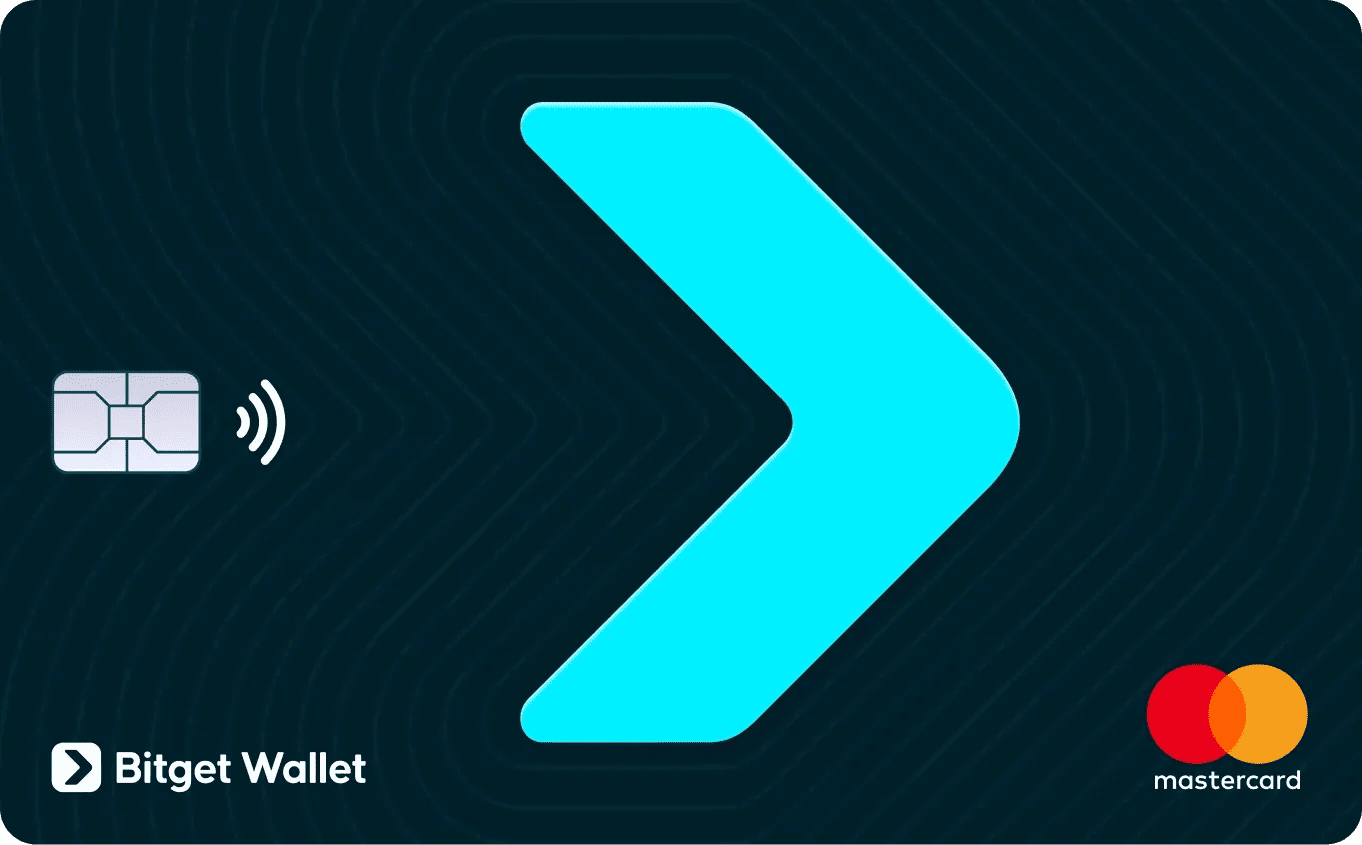
2. Crypto.com Visa – Best for Global Perks and Flexible Rewards
Crypto.com Visa Card offers tiered rewards up to 5% cashback in CRO tokens with premium perks, including Netflix and Spotify rebates, airport lounge access, and metal card designs. The prepaid structure provides global acceptance across 200+ countries with no annual fees for any tier level.
This crypto card stands out via comprehensive lifestyle benefits that scale with CRO staking commitment. It combines robust security features like 2FA with seamless app integration for card management and reward tracking across all spending categories.
Pros:
- Up to 5% cashback with subscription rebates included.
- No annual fees across all card tiers.
- Global acceptance in 200+ countries worldwide.
Cons:
- High CRO staking required for top-tier benefits.
- Cashback volatility tied to CRO token performance.
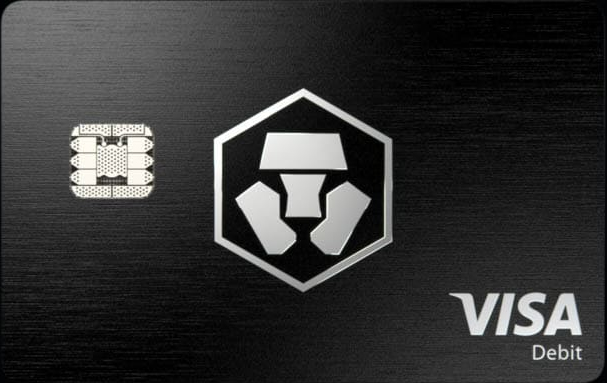
Source: Forbes
3. Coinbase Card – Best for U.S. Crypto Users Seeking Flexible Rewards
Coinbase delivers dual card options for 2025, including a Visa debit card with rotating crypto rewards up to 4% and a new American Express credit card exclusively for Coinbase One subscribers.
Advanced security features like instant card freezing complement the transparent fee structure with no annual charges. The rotating rewards system allows users to select preferred cryptocurrencies for cashback, while strong app integration provides complete spending controls and real-time transaction monitoring.
Pros:
- Rotating crypto rewards up to 4% back.
- No annual fees for either card option.
- Instant crypto conversion with strong app controls.
Cons:
- 2.49% conversion fee on debit transactions.
- Credit card requires paid Coinbase One subscription.
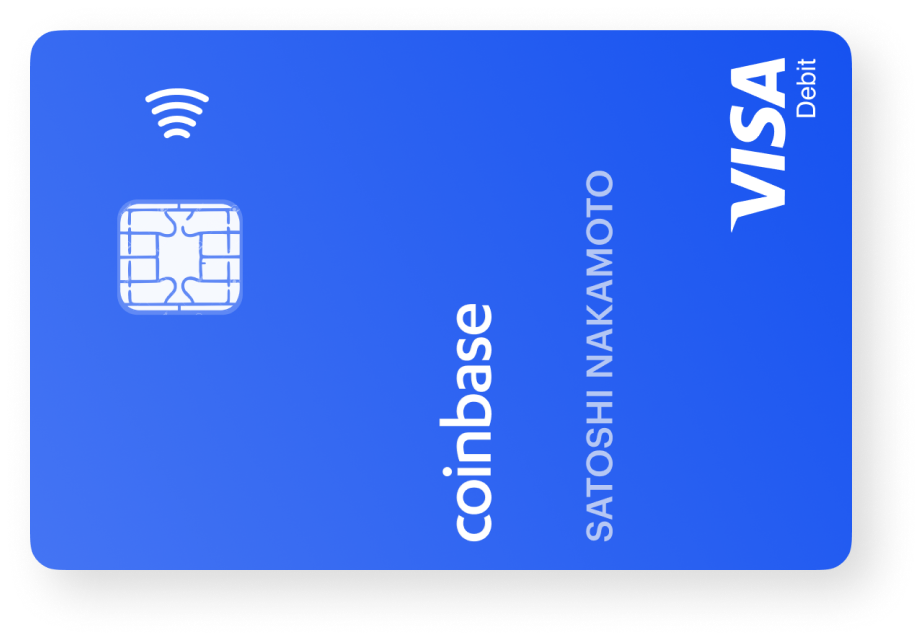
Source: Forbes
4. Nexo Card – Best for Earning Interest While Spending Crypto
With the dual-mode functionality, Nexo Card allows users to seamlessly switch between debit spending and credit borrowing against crypto collateral within the same application. This innovative approach enables users to earn up to 14% annual interest on unused crypto balances.
Recognized as the "Most Exciting Payments Solution of 2025" by INATBA, the card combines transparent fee structures with cashback rewards reaching up to 2% in NEXO tokens. The credit mode offers flexible borrowing with interest rates starting at 2.9% APR, removing the need to liquidate crypto holdings for immediate spending needs.
Pros:
- Dual debit and credit modes with instant switching.
- Earn up to 14% interest on crypto balances.
- No annual, monthly, or inactivity fees charged.
Cons:
- Physical card delivery requires up to four weeks.
- Limited availability in Europe and select markets.
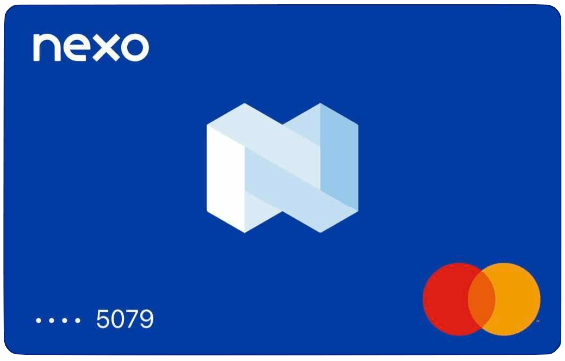
Source: cryptonoshi
5. Wirex – Best for Everyday Spending and Crypto Rewards
Wirex establishes itself through multi-currency support, accommodating over 40 cryptocurrencies alongside traditional fiat currencies. The platform's Cryptoback™ rewards program delivers up to 8% returns in WXT tokens for Elite tier users, representing some of the industry's highest everyday spending incentives.
FCA regulation in the UK and MAS licensing in Singapore provide a robust regulatory foundation, while the absence of annual and foreign exchange fees enhances cost-effectiveness for international users.
Pros:
- Cryptoback rewards reaching up to 8% in WXT.
- Zero annual fees and foreign exchange charges.
- Supports 40+ cryptocurrencies with multiple fiat currencies.
Cons:
- Elite rewards require substantial WXT token holdings.
- Limited availability in certain global markets.
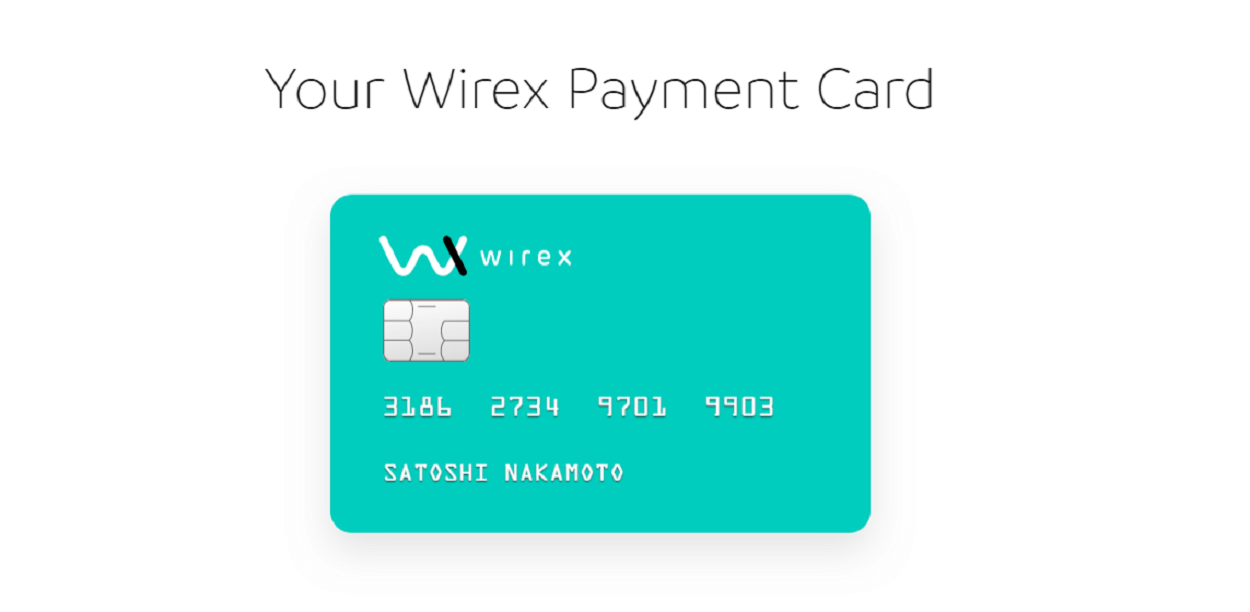
Source: Koinalert
6. Bybit Card – Best for High Cashback & Global Spending
The Bybit Card leverages a unified rewards program that consolidates points across both Bybit Card and Bybit Pay transactions. Premium VIP users benefit from subscription rebates covering Netflix and Spotify, while the flexible payment priority system allows selection of up to three tokens with customizable spending order.
Mastercard global acceptance spans over 90 million merchants worldwide, complemented by EMV 3D Secure technology and instant card freezing capabilities for enhanced transaction protection. The platform's up to 8% APR on crypto balances provides additional earning opportunities beyond standard cashback rewards.
Pros:
- High cashback rates reaching up to 10% during promotions.
- No annual or inactivity fees for ongoing usage.
- Unified rewards system accelerating tier upgrade progression.
Cons:
- Limited cryptocurrency support compared to broader market competitors.
- Non-VIP users face $29.99 physical card issuance fee.
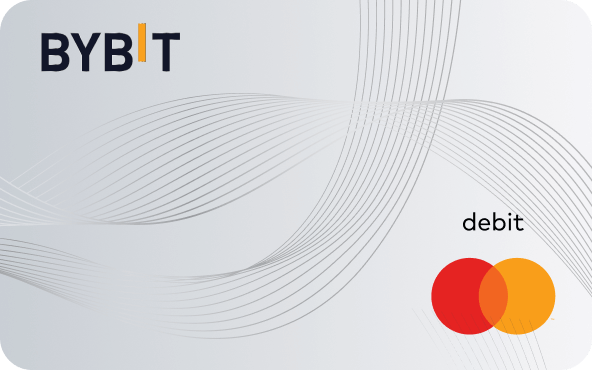
Source: cryptonoshi
7. BitPay Card – Best for Simple, Fee-Free Crypto Spending in the US
BitPay Card prioritizes accessibility through its prepaid Mastercard structure, eliminating conversion fees. This crypto card also incorporates bill payment capabilities and gift card purchasing options directly through the integrated application interface.
Automatic cashback rewards credit directly to card balances for future transactions, while instant reloads from BitPay Wallet or Coinbase accounts maintain spending flexibility without additional charges.
Pros:
- No conversion, monthly, or annual fees charged.
- Wide cryptocurrency support with instant virtual issuance.
- Automatic cashback rewards on all purchase transactions.
Cons:
- Currently limited to United States residents only.
- Prepaid structure requires advance fund loading requirements.
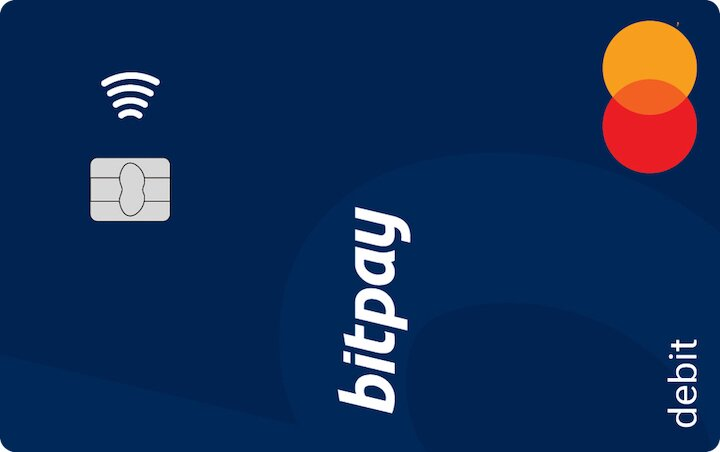
Source: Crypto Vantage
8. Gnosis Pay – Best for Self-Custody and On-Chain Control
Gnosis Pay introduces the world's first self-custodial Visa debit card, directly connected to on-chain Safe Smart Account wallets. The option operates on Gnosis Chain's Layer-2 infrastructure with fast and cost-effective transactions with seamless DeFi protocol integration for advanced users seeking complete asset sovereignty.
The card delivers up to 5% cashback paid in GNO tokens with zero transaction or foreign exchange fees globally, while supporting both traditional SEPA transfers through dedicated IBAN accounts and Apple Pay contactless functionality.
Pros:
- True self-custody with complete user asset control.
- Up to 5% cashback with zero global fees.
- Apple Pay and SEPA transfer integration support.
Cons:
- Setup requires crypto wallet and DeFi familiarity.
- Physical card issuance costs €30 upfront fee.
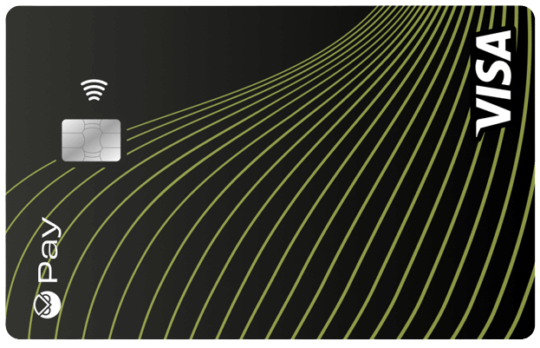
Source: cryptonoshi
9. ether.fi Cash – Best for DeFi Yields and True Crypto Credit
ether.fi Cash operates as the first non-custodial crypto credit card. Built on Ethereum Layer-2 infrastructure, the system allows collateralized assets like ETH, BTC, and stablecoins to continue generating DeFi yields reaching up to 14.3% annually through protocols like LiquidUSD.
Revolutionary credit functionality eliminates traditional banking requirements through on-chain asset verification, while promotional cashback rates reach up to 4% on all purchases with instant crypto rewards distribution.
Pros:
- True credit functionality with flexible repayment schedules.
- Assets continue earning DeFi yields as collateral.
- Up to 4% promotional cashback with instant rewards.
Cons:
- Product features still evolving with gradual rollouts.
- Requires DeFi knowledge for optimal platform utilization.

Source: ether.fi Cash
10. Holyheld – Best for Non-Custodial Control and Multi-Network Support
Holyheld bridges decentralized finance with traditional payment infrastructure through its non-custodial architecture. Plus, this crypto card supports multi-network functionality across Ethereum, Arbitrum, Optimism, Polygon, Base, Avalanche, zkSync, Mode, and Gnosis blockchains for seamless asset management and spending flexibility.
The card option also provides up to 1% cashback in USDC with instant reward distribution, complemented by biometric authentication protocols and on-chain transaction protection coverage extending to $50,000 for enhanced security assurance.
Pros:
- Complete non-custodial design maintaining full user asset control.
- Comprehensive multi-network support for diverse blockchain ecosystems.
- Personal IBAN integration with gasless transaction processing.
Cons:
- Metal card premium pricing at €199 issuance fee.
- Transaction fee structure after 100 complementary transactions.
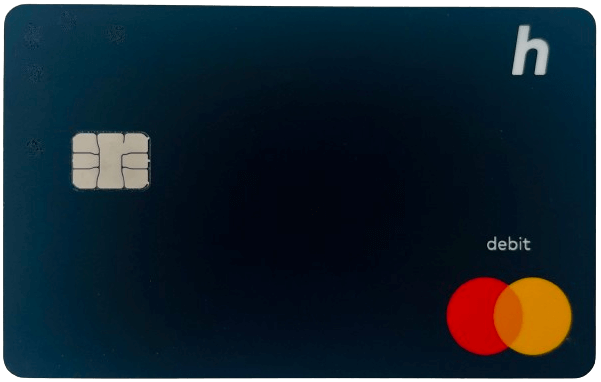
Source: cryptonoshi
How to Choose the Right Crypto Card for You?
Selecting the best crypto card requires evaluating your spending patterns, preferred cryptocurrencies, and regional requirements.
Compare Rewards and Cashback Rates
Crypto card rewards typically range from 1% to 5%, with payment in various digital assets. Crypto.com Visa offers up to 5% CRO cashback for top-tier users, while Bybit Card provides up to 10% rewards for VIP members, though both require significant token staking or spending thresholds.
Tiered reward systems favor committed users, with entry-level cards like Coinbase Card offering 1-4% depending on selected cryptocurrencies. Consider reward asset volatility and long-term value when comparing cashback structures across different platforms.
Consider Fees, Taxes, and ATM Costs
Annual fees vary significantly, with Bitget Wallet Card, Crypto.com, and Coinbase offering no annual charges at entry levels. Transaction costs include crypto-to-fiat conversion fees ranging from 0.9% to 2.49%, plus potential foreign exchange charges when traveling internationally.
ATM withdrawal limits typically provide $200 monthly free access before fees apply. Every crypto-to-fiat transaction triggers taxable events in most jurisdictions, subject to capital gains calculations based on asset appreciation since acquisition.
Check Regional Availability and Supported Coins
Regional limitations impact payment card availability, as Coinbase Card restricts access to American, British, and European territories, whereas Bybit and Wirex provide wider international reach. Digital currency acceptance ranges from standard Bitcoin and Ethereum options to cross-chain platforms handling multiple token types.
Bitget Wallet Card sets itself apart through extensive cross-blockchain integration, allowing transactions across different protocol systems. Government rules shape card operations, with crypto-supportive areas such as Switzerland and Singapore providing greater business flexibility.
Custodial vs Non-Custodial: What Fits Your Needs?
Standard crypto payment cards employ custodial frameworks where companies hold customer funds before purchase transactions. This system emphasizes ease of use but demands confidence in external security measures and business operations, creating possible account suspension dangers during conflicts.
Bitget Wallet Card functions through a non-custodial framework, preserving customer fund ownership before payment processing. This structure improves confidentiality, minimizes central system attack exposure, and allows direct decentralized finance access.
Are Crypto Cards Safe and Legal to Use?
Crypto cards provide secure and legal payment solutions when issued by reputable providers with proper regulatory compliance.
What are the Security Features to Look For?
Leading crypto card providers implement multiple security layers to protect users from fraud and unauthorized access.
-
Two-Factor Authentication (2FA):
Adds crucial second verification steps through authenticator apps or SMS codes, making unauthorized access significantly harder to achieve.
-
PIN Protection:
Demands private numbers for face-to-face buying and cash machine transactions, building extra defense barriers against fake purchases.
-
Instant Card Freezing:
Enables fast card disabling when misplaced or taken, stopping additional illegal usage before customers decide to restart the card.
-
Biometric Security:
Provides thumb or face scanning for app entry and purchase confirmation, reducing dangers of illegal account access.
Regulatory and KYC Requirements by Region
All best crypto cards demand customer identity confirmation, featuring personal papers and home address verification, to stop theft and follow money washing prevention rules. This normal method guarantees law following across main areas while shielding customers and companies from government rule breaks.
Bitget Wallet Card exemplifies proper regulatory compliance as a legally issued product backed by Visa and Mastercard partnerships. Regional restrictions might happen in some places because of rule needs, but approved markets gain from robust consumer protections and global payment network standards that ensure both security and legal legitimacy.
Tax Implications of Spending with a Crypto Card
Understanding tax obligations when using crypto cards ensures compliance with reporting requirements and proper financial planning.
How Spending Crypto Is a Taxable Event
When you use a crypto card to pay for goods or services, you are effectively selling or disposing of your token. This triggers a taxable event in most jurisdictions, including the US, requiring capital gains or loss reporting based on the difference between your original purchase price and the asset's value at spending time.
Payment methods through direct wallet transfers or crypto debit cards receive identical tax handling. Every purchase requires documentation and reporting, with profit taxes charged when digital currency worth has risen since purchase, whereas losses can reduce other profits when worth has dropped.
Why Stablecoins Might Minimize Tax Exposure
Stablecoins like USDT, USDC, and DAI are designed to maintain stable value, usually pegged to the US dollar.
-
Minimal Gains and Losses:
Stable currency rates experience minor price changes, so purchases generally create minimal or zero profit or loss, reducing tax burden significantly.
-
Simplified Tracking:
Even though stablecoin spending remains technically taxable, the gain or loss is often negligible and considerably easier to track for reporting purposes.
-
Reduced Volatility Risk:
Stable pricing eliminates the unpredictability of tax obligations that comes with spending volatile cryptocurrencies like Bitcoin or Ethereum during transactions.
Are Cashback Rewards Taxed?
Regular cashback rewards earned through spending, such as receiving one percent back in cryptocurrency, are generally not taxable when received. Like traditional credit card rewards, they are considered discounts or rebates rather than taxable income, following established precedent for similar reward structures.
However, rewards or bonuses received for meeting specific spending requirements may be considered taxable income upon receipt. Additionally, if you later sell, convert, or spend your reward cryptocurrency after it has increased in value, you will owe capital gains tax on the appreciation from the time you initially received the reward.
FAQs: Everything You Need to Know About Crypto Cards in 2025
1. Can I get a crypto card with no KYC?
No reputable crypto card providers offer services No reputable crypto card providers offer services without identity checks. Valid payment solutions demand personal verification to meet money laundering prevention rules and banking compliance requirements throughout different regions.
2. Is spending crypto with a card better than converting manually?
Yes, crypto cards provide superior convenience through instant conversion at point-of-sale, global merchant acceptance, and integrated reward systems without requiring manual exchange processes or bank transfers.
3. Which crypto card has the lowest fees?
Bitget Wallet Card offers no annual or issuance fees with competitive transaction costs. Crypto.com and Coinbase also provide zero annual fees, though conversion and withdrawal charges may apply.
4. What if I lose my crypto card?
Immediately freeze the card Immediately freeze the card using the company's phone app to stop illegal purchases. Reach out to help desk staff to order a new card and watch your account for strange transactions.
5. Is Bitget Wallet Card available in my country?
Bitget Wallet Card functions across more than 180 nations but blocks the United States, Mainland China, and many additional areas because of government rule compliance needs. Review official papers for present access.
Why Bitget Wallet Card Stands Out?
Among the many options available in the crypto card space, Bitget Wallet Card distinguishes itself through its legal infrastructure, seamless wallet integration, and highly competitive fee model. Unlike most crypto cards that act as third-party extensions, Bitget's solution is directly backed by its wallet ecosystem — allowing users to enjoy smoother KYC, native crypto-to-fiat conversion, and a host of financial perks.
Here’s why Bitget Wallet Card is one of the most compelling choices :
✅ Sign Up, Verify, Earn:
Complete KYC and get $5 cashback, no strings attached.
✅ Extra financial perks:
Enjoy up to 8% APY on staked stablecoins (region-based), plus cashback bonuses during the first 30 days.
✅ Lowest fees on the market:
Only 1.7% comprehensive fee, compared to 2–3% for most competitors, with zero top-up or monthly charges.
✅ Legally issued:
Through official Mastercard in the EU and Visa in Asia, making it one of the few truly licensed cross-region crypto cards.
✅ Seamless payment experience:
Integrated with Google Pay and Apple Pay, enabling NFC tap-to-pay at any Mastercard/Visa terminal.
✅ Native crypto-to-fiat conversion:
Instantly converts crypto at the moment of transaction, removing manual steps or delays.
👉 Ready to experience the future of crypto payments?
Get started with Bitget Wallet Card today and enjoy low fees, instant crypto-to-fiat spending, and exclusive rewards — all backed by a trusted Web3 wallet.
🔗 Download Bitget Wallet and apply in minutes.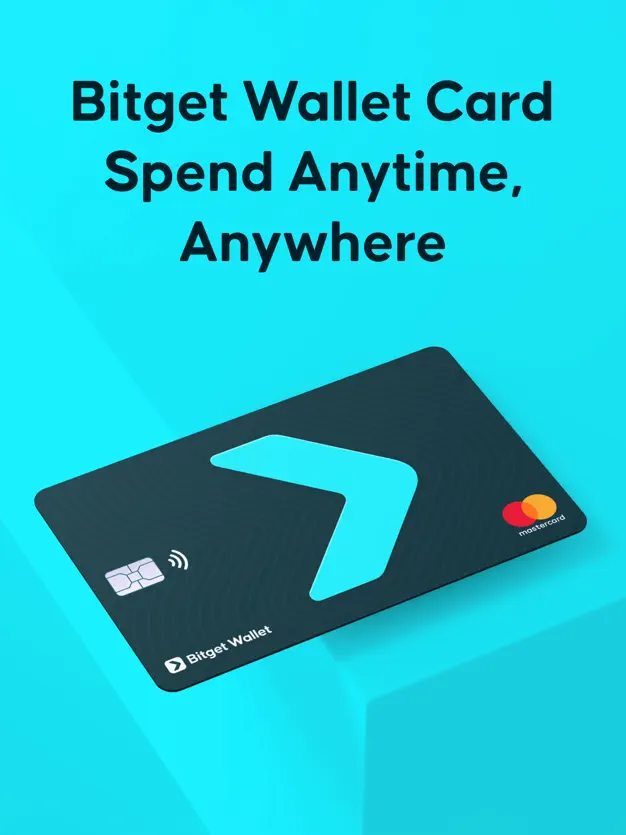
Conclusion
Choosing the best crypto cards in 2025 requires careful evaluation of rewards, fees, security features, and regional availability. Leading options include Bitget Wallet Card for non-custodial control, Crypto.com Visa for premium perks, and Coinbase Card for US users seeking flexible rewards.
These innovative payment solutions successfully bridge traditional finance with digital assets, offering competitive cashback rates, global merchant acceptance, and advanced security protocols. Select cards based on your spending patterns, preferred cryptocurrencies, and desired level of asset control.
Apply for Bitget Wallet Card Right Now!
If you're looking for a legally issued crypto debit card with industry-low fees, instant crypto-to-fiat conversion, and seamless integration with your wallet and mobile payments, Bitget Wallet Card is your best bet in 2025.
✅ Get $5 free just for verifying your account — no strings attached.
✅ Enjoy just 1.7% total fees — lower than 90% of the market.
✅ Stake stablecoins and earn up to 8% APY.
✅ Get extra cashback in your first 30 days.
✅ No top-up or monthly fees, and quick KYC approval.
👉 Ready to simplify your crypto spending?
Download Bitget Wallet and apply for your first crypto debit card in minutes!
Risk Disclosure
Please be aware that cryptocurrency trading involves high market risk. Bitget Wallet is not responsible for any trading losses incurred. Always perform your own research and trade responsibly.
- How to Apply for a Crypto Mastercard2026-01-05 | 5 mins
- How to Apply for a Crypto Visa Card and Start Spending Crypto Worldwide2026-01-02 | 5 mins
- How to Top Up Your Crypto Debit Card with USDT2025-12-29 | 5mins








